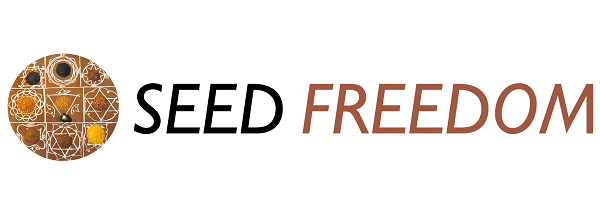An extensive examination by The New York Times indicates that genetic modification in the United States and Canada has not accelerated increases in crop yields or led to an overall reduction in the use of chemical pesticides, which are toxic by design. Weaponized versions, like sarin, were developed in Nazi Germany and have been linked to developmental delays and cancer. Recently, activists and experts from across the world gathered at the Monsanto Tribunal and People’s Assembly in The Hague to expose, among other things, the extent to which companies like Monsanto are trying to impose their rules and their products through the means of corporate lobbying at the expense of farmers, consumers and citizens. As Vandana Shiva, president of Navdanya, pointed out during the People’s Assembly of The Hague: “We have worked here to put Monsanto on trial for its crimes against the Earth, its crimes against our children, its crime of trying to own and patent life and spread poisons. We know we can farm better without their poison. If there is going to be a future for humanity it will have to be organic. We want an organic world and we’re going to continue to work for that”.
The failure of industrial agriculture in terms of production and impact on environment and human health is blatant, as the NYT points out in its recent article: “Twenty years ago, Europe largely rejected genetic modification at the same time the United States and Canada were embracing it. Comparing results on the two continents, using independent data as well as academic and industry research, shows how the technology has fallen short of the promise. An analysis by The Times using United Nations data showed that the United States and Canada have gained no discernible advantage in yields — food per acre — when measured against Western Europe, a region with comparably modernized agricultural producers like France and Germany”. The results of the NYT investigation are therefore evident. Crops didn’t increase, pesticides did: “At the same time, herbicide use has increased in the United States, even as major crops like corn, soybeans and cotton have been converted to modified varieties. And the United States has fallen behind Europe’s biggest producer, France, in reducing the overall use of pesticides, which includes both herbicides and insecticides”. It ‘s clear that chemicals in agriculture are only there for the profits of corporations. But the effect on people’s health are not acceptable as Andre Leu, President of IFOAM – Organics International, pointed out at The People’s Assembly in The Hague: “The biggest tragedy with all these toxic chemicals in our food and all the multitude of diseases that they cause is that they are unnecessary. There is no need for this toxic industrial agriculture”.
NYT investigation discredits one of the main promises of the industry, the promise about feeding the world: “With the world’s population expected to reach nearly 10 billion by 2050, Monsanto has long held out its products as a way to help meet the food demands of these added billions, as it said in a 1995 statement. That remains an industry mantra”. A Mantra not anymore applicable, as the NYT investigation pointed out: “But a broad yield advantage has not emerged. The Times looked at regional data from the United Nations Food and Agriculture Organization, comparing main genetically modified crops in the United States and Canada with varieties grown in Western Europe, a grouping used by the agency that comprises seven nations, including the two largest agricultural producers, France and Germany. Despite rejecting genetically modified crops, Western Europe maintained a lead over Canada in yields”. The false promises about feeding the world were clearly discredited in The Hague’s Assembly and the alternative is well known as Hans Herren, President of Biovision and the Millennium Institute, pointed out: “Yes we can do it, we can change agriculture. There is so much evidence accumulated already to prove that we can nourish up to ten billion and maybe even more people with sustainable agricultural practices”.
Article by Navdanya International
Sources: peoplesassembly.net seedfreedom.info New York Times
A video interview with Dr. Vandana Shiva, founder of Navdanya, Hans Herren, President of Biovision and the Millennium Institute, Andre Leu, President of IFOAM – Organics International, from the Monsanto Tribunal & People’s Assembly.
Source: Ifoam Organics International








Pingback: Effects on people’s health caused by pesticides can no longer be ignored